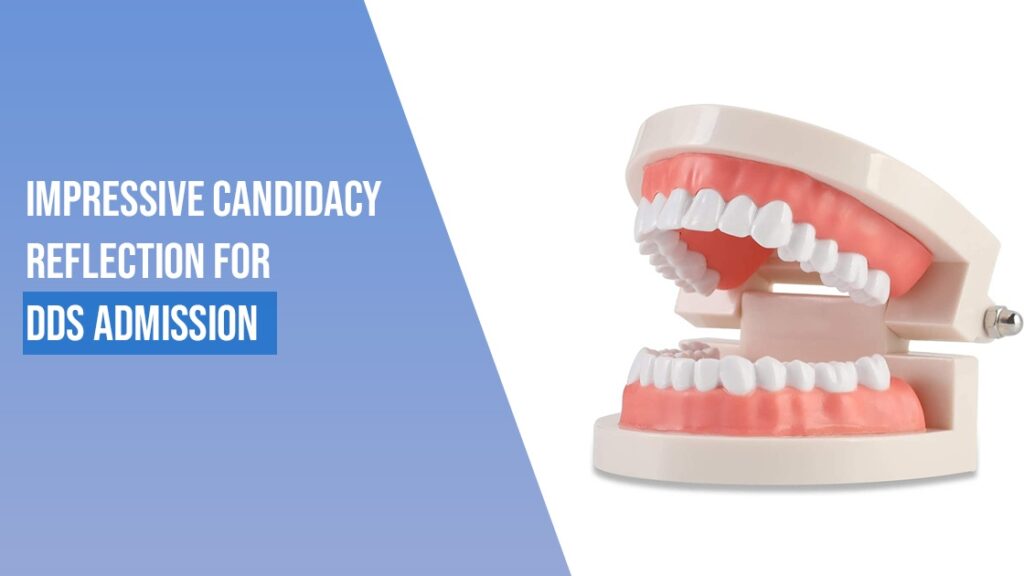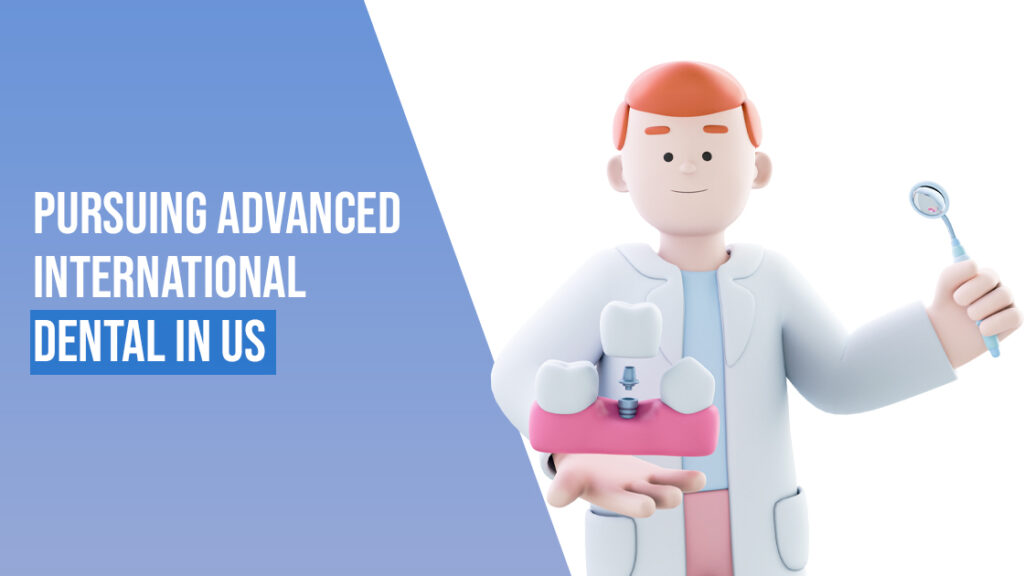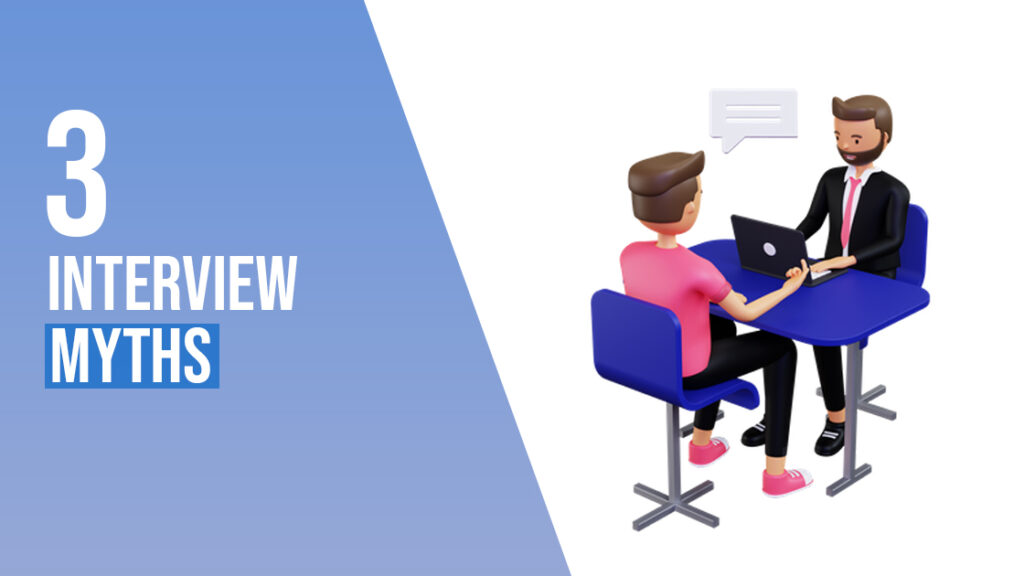As soon as someone reaches out to CaapidSimplified’s founders Dr.Nourah and Karthik, they jump to ask us just one question – “How on earth did she get 10 DDS interview admits in one cycle?” They get surprised further when I tell them that she only recently graduated, doesn’t have a Green Card and hasn’t had the family support to come to the US in the first place.
Debunking the myth here, in a couple of steps.
1. Who is Nourah? How did she get 10 DDS Interview invites?
Dr. Nourah Abdul Kader is a dentist from India who completed her BDS from MGR Medical University, Chennai in the year 2018. She is the youngest daughter in a family of 5 and became the university topper among 14 colleges in all 5 years of her education (4 classroom years + 1 clinical internship year).
Coming from an economically poor background, she realized that her parents couldn’t support her higher education financially. They wanted her married and believed that was her passport to a better life. She was 21, born into a conservative family, and unwilling to give up her desire to do the impossible for any woman in her community. She called up all her friends and crowd-sourced around 3000 USD with the promise of paying them back in the future. Her journey had just started.
Qualification tests
Nourah traveled first to Washington D.C to stay with a school friend and write her qualification exams. The national boards (NBDE part-1 and part-2) are extremely expensive and competitive exams with a failure rate of 64%. She cleared both parts within a 3-month time span. She then appeared for the TOEFL exam and scored 114 on her first attempt, thanks primarily to her school education with English as its first language. But academic credit alone wouldn’t suffice for admissions committees to consider her valuable. She had to do more.
Conferences and Research
Between June 2018, when she first landed, and until Feb 2019, she attended up to 14 conferences. She traveled far and wide to attend these conferences. A couple of states that come to mind are Washington D.C, Pennsylvania, Virginia, Florida, Massachusetts, New Hampshire, Vermont, New York, Connecticut, Maryland, California, Indiana, and Colorado. She traveled by bus, earned freelance jobs, and stayed at some friends’ houses in each city she traveled. Where she didn’t know anyone, she found new ones through networking events, social networks, and mutual friends. Had her family known any of this, they would have asked to return. But this single woman at 21 was unperturbed. Nothing would stop her.
At these conferences, she not just was a participant in attending workshops (alias Continuous Education courses), but was the presenter. Apart from making ppts. and presenting topics from her past research in India, she started researching new topics that captivated her in the US. She studied the 3D printing market for dentistry, the use of digital marketing in American Dental Offices, and the dental needs of autistic kids by collaborating with different organizations.
It’s an irony sometimes that US school admission officers do not value the clinical experience of International dentists on par with their local counterparts. This might be in part because of the diverse standards of care and access to infrastructure in various foreign countries. Also, a large part, of this is influenced by the negative reputation several Indian engineers have gathered applying to opportunities with fake resumes. A good number of dentists travel to the US therefore to gain clinical experience here and fortify their credentials.
Visa
A dentist can work in the U.S. in only a few possible ways. With their international BDS degree, they can serve as dental assistants at private clinics provided they have a Green Card (Permanent Resident Status) or US citizenship. Apart from this, by traveling as a dependent to someone who has a work permit, you can work under an H4 EAD work authorization. Not the safest bet given Trump’s administration, not relevant to this story either. Nourah felt in none of these categories. She was a regular tourist with a B1/B2 visa and was legally allowed to only stay for 6 months every time she traveled to the US. Although she wasn’t authorized to work, she could shadow doctors in dental clinics. ‘Aha’
Naturally, being the opportunist she is, she began shadowing in all kinds of clinics one can imagine. She shadowed at family-run dental units, individual practices, research-oriented hospitals, state-of-art clinics, and pediatric and philanthropic clinics. She didn’t know anything about them before she entered the country. She would search on Google Maps, physically walk to these clinics, speak to the dentists there, and bag opportunities every time she traveled. Is it possible? Yes, it is. There are more organized package programs called preceptorships (clinical internships) that schools like BU offer against a payment of USD 3000. When we can’t afford things in life, we get creative!
Advanced Standing
Outside of gathering these experiences, Nourah had to apply to schools through the CAAPID (Centralized Application for Advanced Placement for International Dentists) website. This is a common portal to apply to any of the 64 dental schools in the US that offer an advanced standing degree. An advanced standing degree is a 2-year bridge program for International dentists to join US dental school students in the 4th and 5th year and graduate and graduate together with a DDS degree. Imagine, Sam, a US citizen, who wants to become a dentist. He has to complete a B.S. (Bachelor of Science) degree for 4 years and then apply to dental school. During the 4th year of his final year dental program, he is joined by international dentists who apply through Caapid. Together they graduate after Sam’s 5th year.
Application writing
The ADEA-CAAPID application process is long and arduous. You must write a 1000-word personal statement (SOP), and attach your resume. For every experience on your resume, whether it is work, shadowing, research, conference, publication, community service, or extracurricular activity experience, you must substantiate with a 300-word paragraph. You must also add details of awards, professional affiliations, and additional education experiences apart from qualifying test details (scores & attempts). The effort is the equivalent of scripting a biopic!
It is mandatory to supplement this application with 3-5 letters of recommendation. Nourah got 8 and chose to attach different permutations of them for different schools. Her dean, faculty, and clinic head in India and the US gave her these letters. Some schools like Colorado University require a separate 1000-word SOP and around 18 universities require that applicants answer 3-4 supplemental questions specific to their institution. I know! That’s a truckload. A dentist applying to 10 great schools is writing anywhere between 10,000 and 35,000 words between the many iterations an application requires. I helped her edit a few of these pieces.
The least discussed topic, but most asked is the finances involved. How expensive is the DDS application?
Apart from a one-time payment of $700 to Caapid, Nourah had to pay between $100-$250 per school. She had to further pay between $200-$1000 dollar to reserve an interview seat if she got invited to one. She got invited to TEN. Each TOEFL test attempt requires almost $150 and they expire in 2 years. In total, she had to spend almost 15,000 USD just to apply and attend interviews. This includes the cost of flight tickets and accommodation as well. How much did her parents give her – just 1000! Sometimes if you want it so bad, you go out there and get it. I’ve never seen a better example of this.
Bench and Treatment planning
Dental admissions are a bit different in their interview process. There are of course regular behavioral interviews that determine fit. There are 2 other rounds that are present with slight modifications in each school. One is to test your clinical theoretical and the second is for your practical skills. The former is more popularly known as ‘treatment planning’ and asks that a dentist view a patient’s case file, radiographs, and other evidence before they prescribe how to approach treatment. The latter is called the ‘bench test’ and expects applicants to perform different dental procedures on a mock teeth frame (typodont). The bench test can be between 2-7 hours and can test anywhere between 1-9 procedures at a stretch.
Preparing for dental admissions is a different animal altogether. Not because BDS doesn’t teach this, but because it comes with its own nuances when performed in the US. There is an incredible adherence to protocol, dependence on technology, and insistence on the quality of finishes. Competition just makes it worse.
Competition
Let’s discuss the competition. We are looking at a total talent pool of 11,000 applicants each year competing for just 665 seats. Most dentists don’t stop with 1 attempt. On average every dentist applies at least 2.5 times and sometimes that count goes as high as 6. Applicants have between 0-14 years of experience with an average of 4.5. Some apply after a master’s degree (MDS) in their local country or other dental assistant or dental residency degrees in the US. Some people migrate to the US soon after their BDS or after marriage and gain some US work experience. A few others go to Canada where PR permits are easy to get. Nourah, in contrast, had no work experience in India or the US, applied right after BDS, had just a tourist visa, and attempted twice.
Result
In the 2019 cycle, she got interviewed at CU and the following year in 2020, she got 10 admits, She will be joining SIU (Southern Illinois University) which takes only 6 students after a 7.5 bench test and 3 interviews, come February. Her security deposit requires 11,000 USD and the total course fee is around 280,000 USD. She has made it so far. This website will help her secure her future.
Well, how did 1 interview turn into 10 admits within a year? Is that even possible?
That’s where I came in.
BDS to DDS – 10 interview invites by an international student – A backstory!
2. WHO IS KARTHIK?
I’ll keep this short. I promise.
I completed engineering at NIT in India. Worked in big tobacco. Then in 2015, joined Nourah’s brother to co-found an e-commerce startup that sold wedding invitations (That1Card.com). Later I sold the company to fund my MBA in the US. In 2018, I was one of the friends who hosted Nourah and learned about her application process.
It was evident to me that although I didn’t know anything about dentistry, I knew quite a bit about the mentality of American admissions committees and especially American doctors. Since I work in the healthcare industry, I do get interact with them often. I was inspired by all the hard work Nourah put in and helped her with some strategies to better showcase her experience in applications and interviews.
In business, when grit meets strategy, anything is possible! Nourah met Karthik, and we did the impossible. I am such a proud friend today.
That’s Dr. Nourah and Karthik
What is Caapid Simplified?
The need: Nourah requires funds to pay for her security deposit at SIU. The education loan wouldn’t cover this amount that is required to be paid 4 months in advance of the course start date.
The strength: We did achieve something rare. 11 admits in 2 consecutive cycles. Despite all the disadvantages earlier mentioned with respect to visa, experience and financials. This knowledge took a lot of effort, travel and money to achieve.
The idea: Let’s exchange this knowledge for funds. Any dental applicant coming to us can get answers, guidance and counselling saving so much time and effort. Even better, they can get this at a price lower than any other comparative professional counsellor.
The business: So what happens, after Nourah pays her deposit and joins SIU? Do we continue to stop all this and bury this site. Maybe not, not if it can provide valuable information to so many dentists like her in the years to come. If every question and answer can be documented as a blog or email tip, it could help so many people. And they can get all this for free if Google Ads pays for the engagement.
In short: CaapidSimplified will provide information that will help international dentists secure DDS admissions by providing them free content to plan their application strategy, writing methodology and crack admission interviews. Dentists can get 1-on-1 personalised coaching by booking services as well.
Yours, Karthik
Friend and well-wisher of Dr. Nourah


